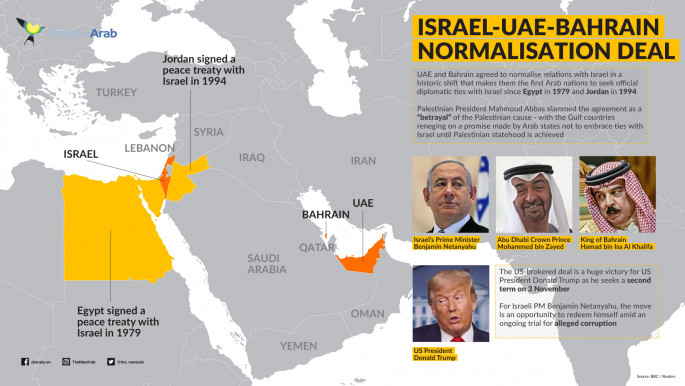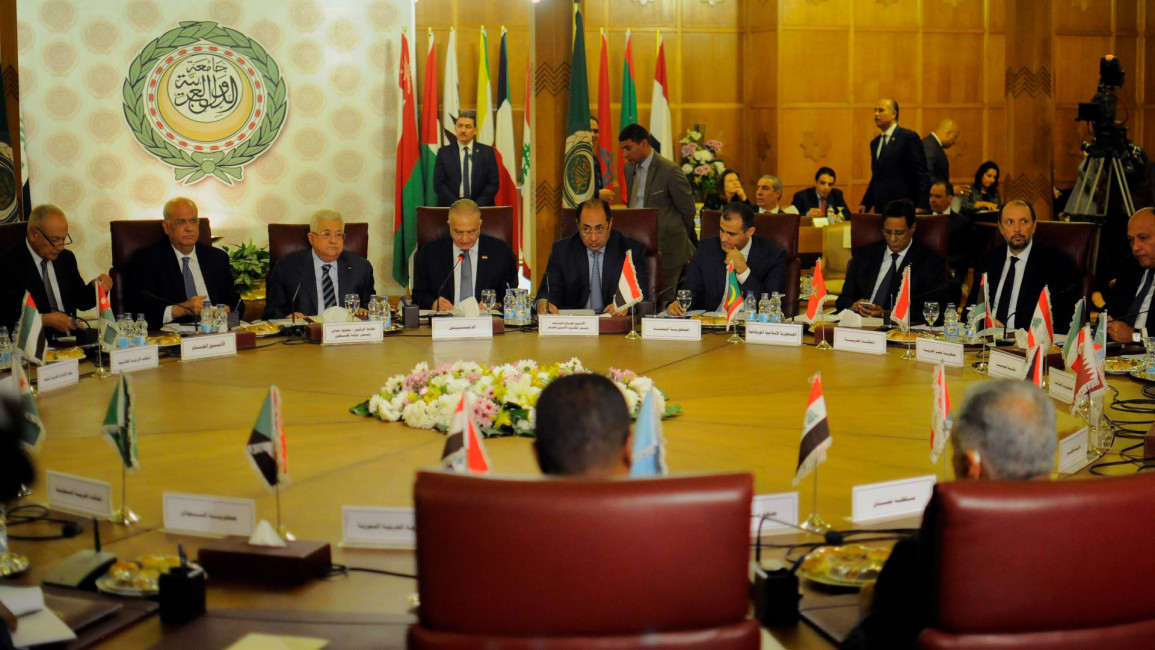Qatar refuses to assume Arab League presidency after Palestine resigns position
But the Gulf nation has refused to assume the role of presidency this year, Palestinian news agency Maan reported Thursday, saying it will take on the role in 2021.
Palestinian Foreign Minister Riyad al-Maliki announced his country's decision to resign from the rotating presidency of the Council of the Arab League on Tuesday, after its failure to agree a draft resolution condemning a normalisation accord between the UAE and Israel.
"The State of Palestine... refuses to record in its history the association of its presidency with the regression in values and principles that was evident in the last meeting of the council of foreign ministers," Maliki said in the West Bank town of Ramallah.
The Palestinians presided over the council's latest session earlier this month and had been due to stay in the role until March.
Their delegation had tabled a draft resolution at the meeting of the council, which brings together foreign ministers of the 22-member bloc, to condemn the normalisation accord but it was not adopted.
The Cairo meeting came ahead of another another deal announced by Bahrain with Israel. Both deals were signed in Washington on 15 September.
The Gulf agreements broke with years of Arab League policy on the Israeli-Palestinian conflict and were condemned by Ramallah as a "betrayal" and a "stab in the back".
The deals provided Israel with full diplomatic, economic, and cultural relations despite its continued illegal occupation of the West Bank and East Jerusalem.
Maliki said that the Arab League secretariat had taken a position supportive of the Gulf states' normalisation deals, in violation of the Arab League's own principles regarding peace with Israel.
In 2002, the Arab League adopted a Saudi proposal offering Israel normalisation only in return for a full Israeli withdrawal from these territories, which it captured in the 1967 Arab-Israeli War, as well a just solution for Palestinian refugees.
This plan, known as the Arab Peace Initiative, has been pushed aside by the US administration, which in January unveiled the much-condemned "Deal of the Century" peace plan which allows Israel to annex large swathes of the occupied West Bank.
The UAE claimed that its normalisation deal put Israel's annexation plan on hold but Israel retorted that any delay would be short-lived and its annexation plans remained on the table. Text of the normalisation deal with the UAE made no mention of the annexation plans.
 |
Agencies contributed to this report.
Follow us on Facebook, Twitter and Instagram to stay connected



